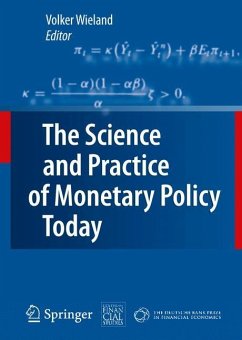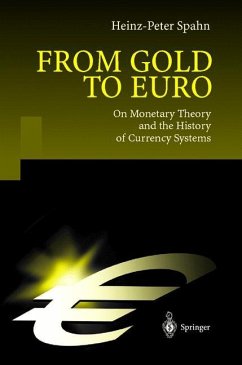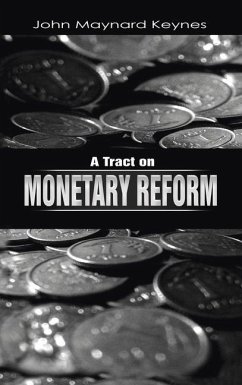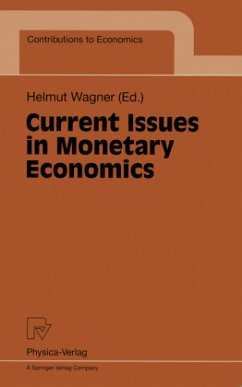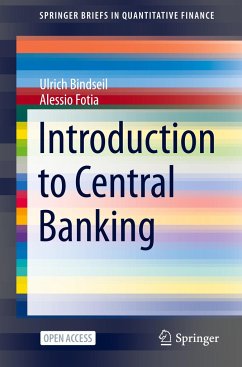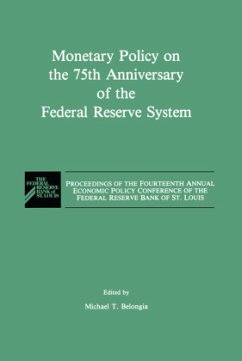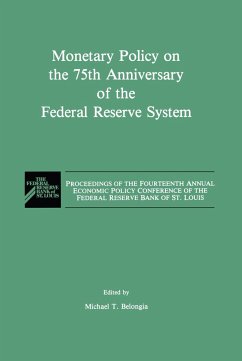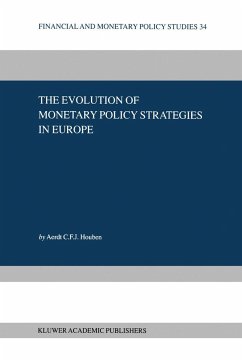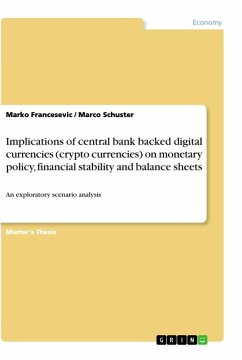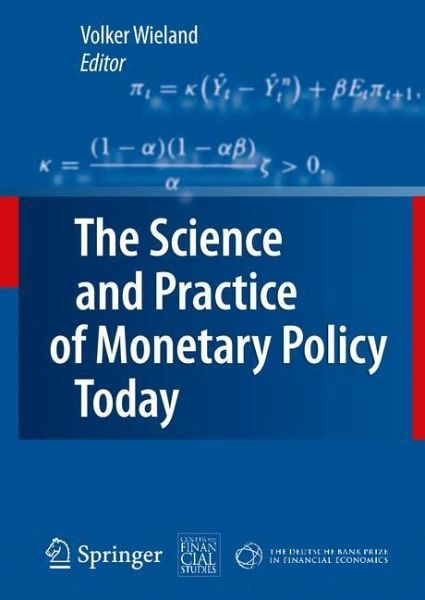
The Science and Practice of Monetary Policy Today
The Deutsche Bank Prize in Financial Economics 2007
Herausgegeben: Wieland, Volker

PAYBACK Punkte
38 °P sammeln!
This book presents important aspects of the New-Keynesian theory of monetary policy and its implications for the practical decision-making of central bankers today. Bridging the theory and practice of monetary policy, it provides an exposition on the key elements of the New-Keynesian approach, outlines important lessons for policymakers, and points to new directions for further research. Important policy implications of the New-Keynesian approach such as the case for forecast targeting as a strategy for monetary policy, the combination of model-based forecasts with cyclical analysis, and strat...
This book presents important aspects of the New-Keynesian theory of monetary policy and its implications for the practical decision-making of central bankers today. Bridging the theory and practice of monetary policy, it provides an exposition on the key elements of the New-Keynesian approach, outlines important lessons for policymakers, and points to new directions for further research. Important policy implications of the New-Keynesian approach such as the case for forecast targeting as a strategy for monetary policy, the combination of model-based forecasts with cyclical analysis, and strategies for cross-checking model-based policy recommendations are presented in detail. The book brings together new contributions from leading scientists and experienced policymakers presented at an academic symposium on the occasion of the awarding of the Deutsche Bank Prize in Financial Economics 2007 to Professor Michael Woodford.
With contributions by: Josef Ackermann, Deutsche Bank AG; Günter Beck, Goethe University Frankfurt; Jordi Galí, Universitat Pompeu Fabra; Stefan Gerlach, Goethe University Frankfurt; Domenico Giannone, European Central Bank; Otmar Issing, Goethe University Frankfurt; Hermann-Josef Lamberti, Deutsche Bank AG; Patrick Lane, The Economist; Bennet T. McCallum, Carnegie Mellon University; Frederic Mishkin, Columbia Business School; Francesca Monti, Université Libre de Bruxelles; Lucrezia Reichlin, London Business School; Norbert Walter, Deutsche Bank AG; Celia Wieland, wieland EconConsult; Volker Wieland, Goethe University Frankfurt; Michael Woodford, Columbia University
With contributions by: Josef Ackermann, Deutsche Bank AG; Günter Beck, Goethe University Frankfurt; Jordi Galí, Universitat Pompeu Fabra; Stefan Gerlach, Goethe University Frankfurt; Domenico Giannone, European Central Bank; Otmar Issing, Goethe University Frankfurt; Hermann-Josef Lamberti, Deutsche Bank AG; Patrick Lane, The Economist; Bennet T. McCallum, Carnegie Mellon University; Frederic Mishkin, Columbia Business School; Francesca Monti, Université Libre de Bruxelles; Lucrezia Reichlin, London Business School; Norbert Walter, Deutsche Bank AG; Celia Wieland, wieland EconConsult; Volker Wieland, Goethe University Frankfurt; Michael Woodford, Columbia University





